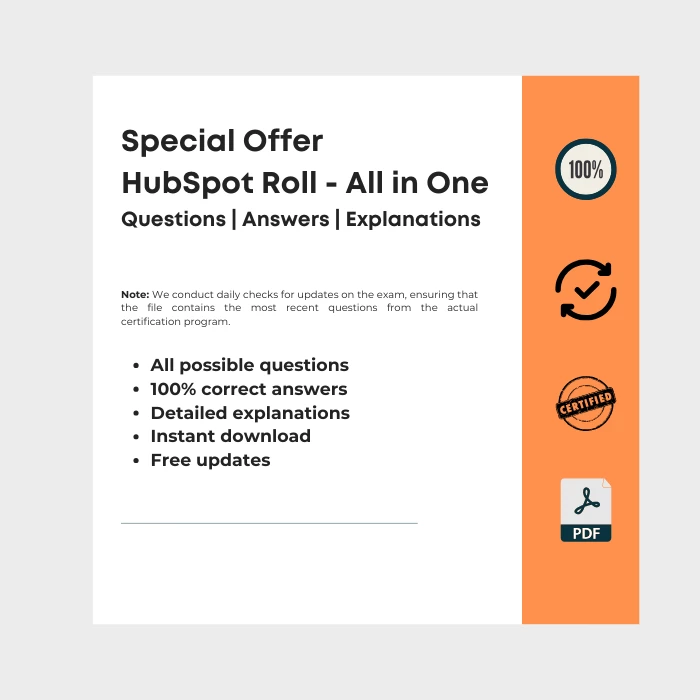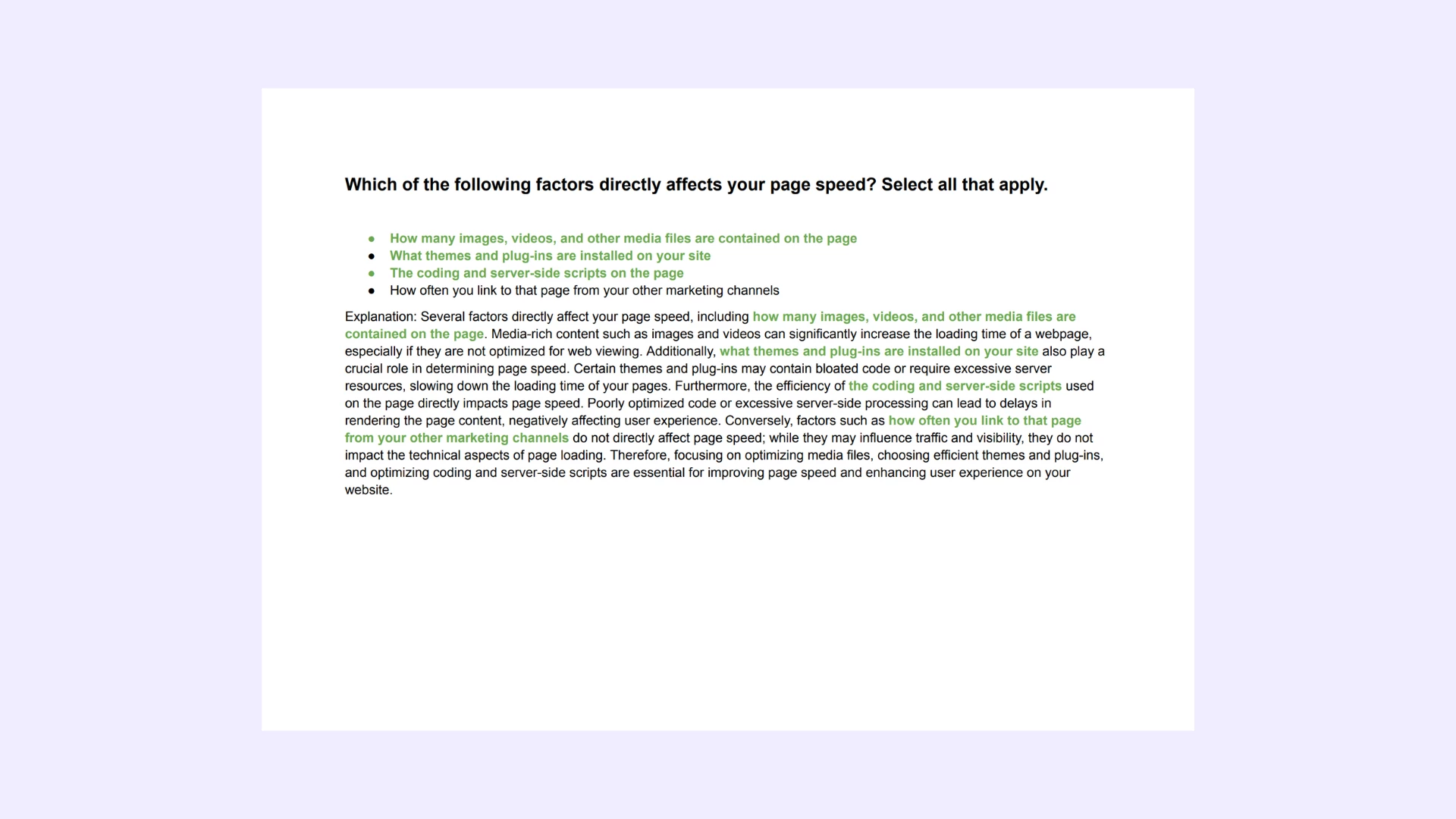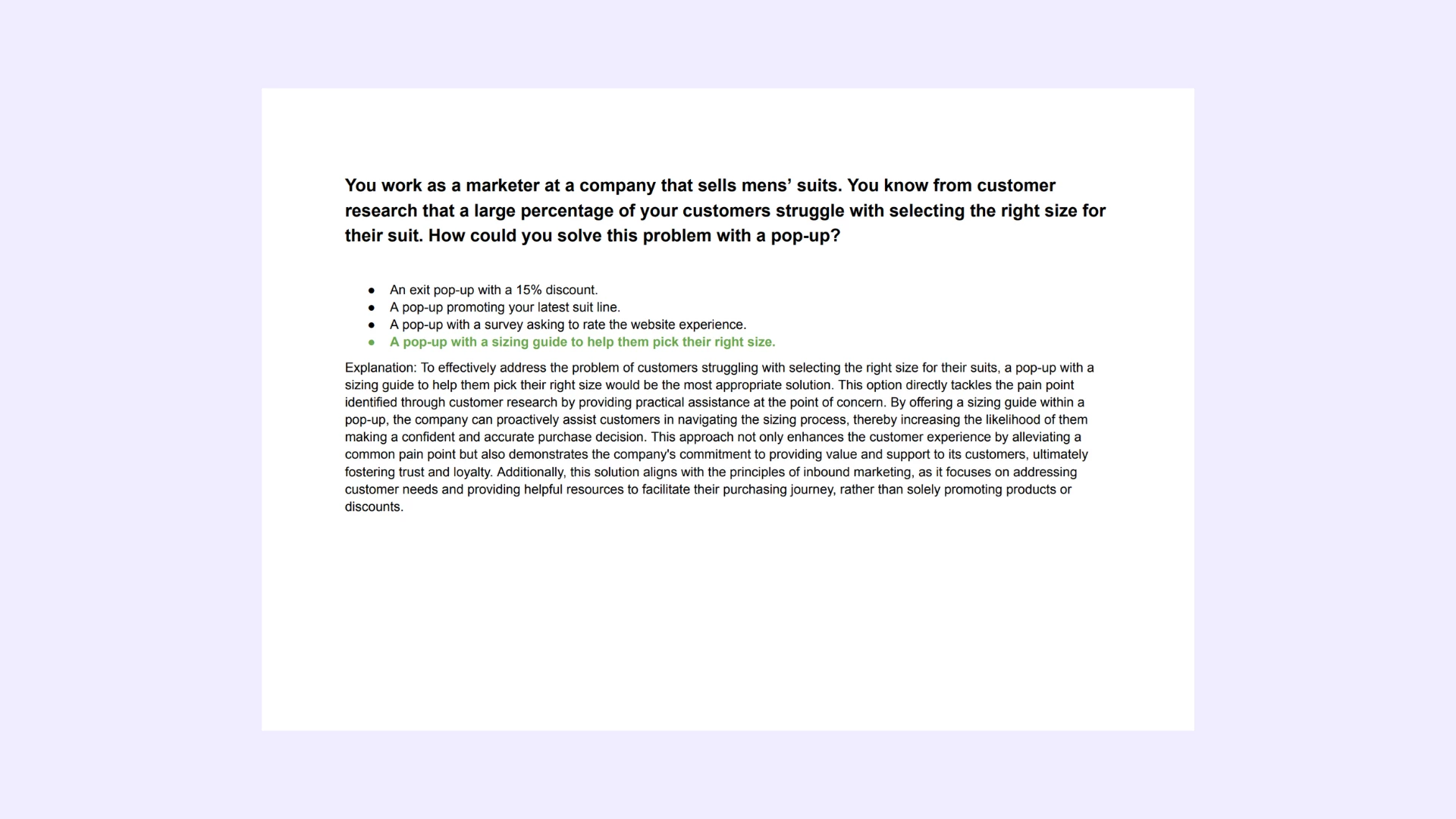Why is segmentation important in email marketing?
It allows you to send personalized communication to your audience at scale.
It allows you to send generic content to your entire email list.
It allows you to send specific emails to individuals one at a time.
It helps you save time and effort by not having to create personalized content.

HubSpot Roll. Includes Answers for Every Real HubSpot Certification Exam.
All-in-One: Get all HubSpot exams answers with explanations in one bundle. This package includes answers for every current HubSpot certification. Regular updates to reflect the latest exam version. -> See what's included.


Need a single cerification exam answers? Check out our -> list of certification exams answer keys. Learn Smarter. Obtain or Renew your certificates with peace of mind!
Explanation: Why is segmentation important in email marketing?
Explanation: Segmentation is important in email marketing because **it allows you to send personalized communication to your audience at scale**. By dividing your email list into distinct segments based on criteria such as demographics, behavior, or preferences, you can tailor your messages to better resonate with each group of recipients. Personalized emails have been shown to generate higher engagement rates, including open rates, click-through rates, and conversion rates, compared to generic mass emails. Segmentation enables you to deliver relevant content that addresses the specific interests and needs of different segments of your audience, thereby increasing the likelihood of positive responses and interactions. Moreover, segmentation doesn't require sending individual emails one at a time, as suggested by one of the incorrect options; instead, it allows for efficient targeting of groups of recipients with similar characteristics or behaviors. While sending generic content to the entire email list might seem simpler, it often leads to lower engagement and can even result in subscribers opting out due to receiving irrelevant content. Therefore, segmentation plays a crucial role in maximizing the effectiveness of email marketing campaigns by enabling personalized communication on a large scale, ultimately driving better results and fostering stronger relationships with your audience.

Special Bundle Offer HubSpot Roll. All in One
Note: We conduct daily checks for updates on the exam, ensuring that the file contains the most recent questions from the actual certification program.
Questions | Answers | Explanations. FREE Updates.
You may also be interested:
- Special HubSpot bundle offer - all HubSpot exams in one
- HubSpot CMS for develpers certification exam answers
- HubSpot CMS for develpers II certification exam answers
- HubSpot content hub for marketers certification exam answers
- HubSpot content marketing certification exam answers
- HubSpot contextual marketing certification exam answers
- HubSpot digital advertising certification exam answers
- HubSpot digital marketing certification exam answers
- HubSpot email marketing certification exam answers
- HubSpot frictionless sales certification exam answers
- HubSpot growth driven design certification exam answers
- HubSpot inbound certification exam answers
- HubSpot inbound marketing certification exam answers
- HubSpot inbound marketing optimization certification exam answers
- HubSpot inbound sales certification exam answers
- HubSpot integrating with HubSpot I foundations certification exam answers
- HubSpot marketing hub software certification exam answers
- HubSpot reporting certification exam answers
- HubSpot revenue operations certification exam answers
- HubSpot sales enablement certification exam answers
- HubSpot sales hub software certification exam answers
- HubSpot sales management certification exam answers
- HubSpot sales software certification exam answers
- HubSpot seo certification exam answers
- HubSpot seo II certification exam answers
- HubSpot service hub software certification exam answers
- HubSpot social media marketing certification exam answers
- HubSpot social media marketing II certification exam answers